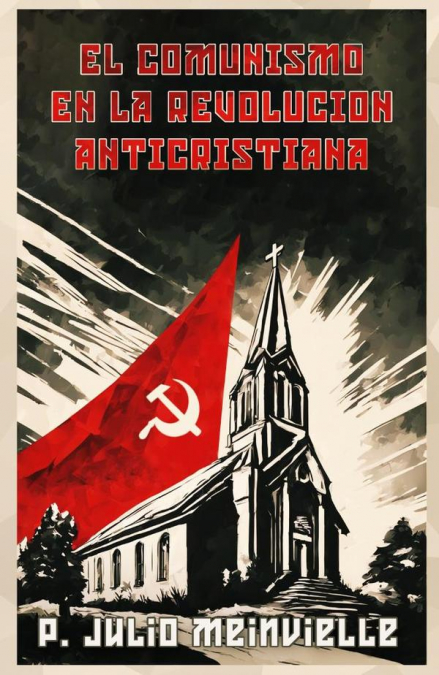
Julio Meinvielle
’El presente libro quiere determinar con precisión qué sitio ocupa el comunismo en la Revolución anticristiana. Pero ello no es posible si no se determina, a su vez, el significado y alcance de la misma Revolución anticristiana. La Revolución anticristiana no puede ser caracterizada en toda su significación si no se fija el carácter necesariamente cristiano que ha de revestir el movimiento de la historia después que Cristo se ha hecho presente entre nosotros. El tema del presente ensayo es precisamente éste, a saber, cuál sea el significado último del comunismo en la historia. Y la historia, en definitiva, pertenece a Cristo como le pertenece todo hombre. El comunismo, que aparece en la historia y llena toda una época de la vida del hombre en su paso por la tierra, ha de entrañar necesariamente una significación en la relación también necesaria del hombre en Cristo. De aquí que en un primer capítulo hayamos de explicar la significación de Cristo y de su enemigo el anti-Cristo en la historia de los pueblos.-------El P Julio Meinvielle (1905-1973) Nació en Buenos Aires el 31 de agosto de 1905, poco sabemos hasta ahora de su infancia (su biografía está recién por escribirse). Terminados los estudios secundarios, ingresó en el Seminario Pontificio de Villa Devoto, donde – luego de doctorarse en Filosofía y Teología – se ordenó sacerdote el 20 de diciembre de 1932. Era una época de gloria la del seminario, por aquellos tiempos se formaba tanto Meinvielle como “Castellani, Derisi, Sepich, Lavagnino, Garay y tantos otros”. Sabemos por testimonios y relatos que se han transmitido, que, durante las clases del Seminario, Julio Meinvielle estudiaba ya las materias del año siguiente, estando, así, un año adelantado.Luego de su ordenación y con apenas 27 años (1932), comenzó a difundir su pensamiento precoz; de aquella época data su primer libro que será una de sus obras fundamentales: Concepción Católica de la Política. De pensamiento vigoroso, sin demasiados rebusques, concibe aquí la política de la mano de Santo Tomás y Aristóteles, como esa ciencia arquitectónica de la cual hablaba el de Estagira, que es capaz de llevarnos al bien común sobrenatural y natural.’ 10